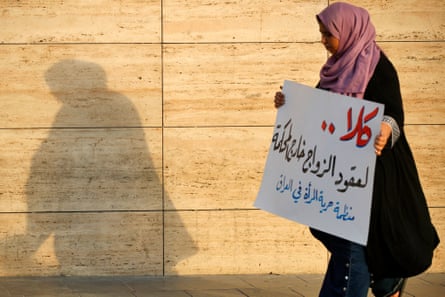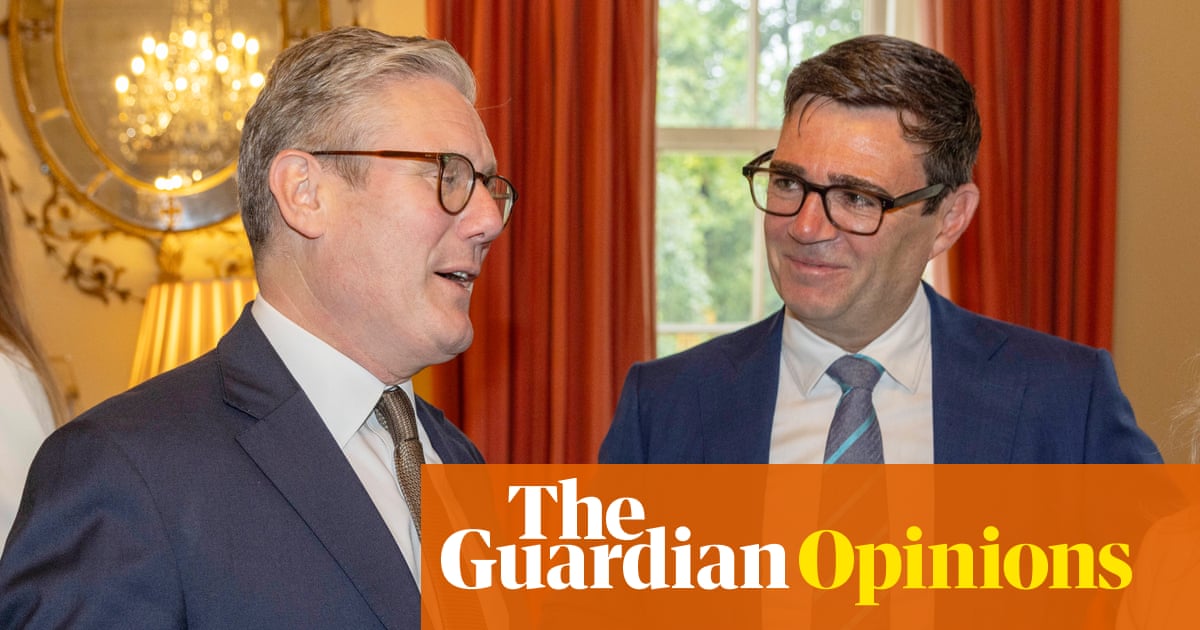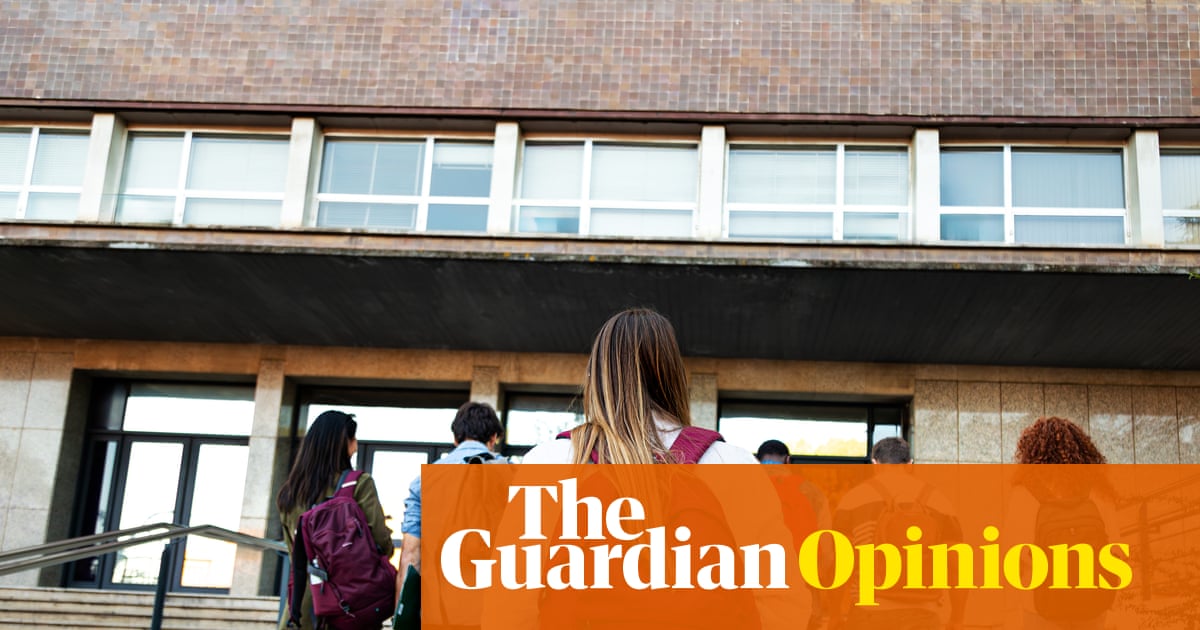I was about 13 when my family decided to marry me off to a man of 29. I cried, I resisted. The pain was doubled because even at that age I was already drawn to reading about rights and freedoms. My suffering came from knowing that my rights were being violated, along with my adolescence and childhood.
But soon I had to accept the situation after hair was ripped from my head, my face smashed to the ground and threats of being pulled out of school. Any attempt to refuse this groom in front of him or his family, I was told, would end in my death.
I remember the nights before meeting him: my mother threatened to strangle me in my sleep, while my father described in detail how he would take me to the relatives’ village and throw me into a well.
I begged my aunts, who themselves had been married off young and against their will. They refused to intervene, perhaps out of fear of reopening their own wounds. I was left alone to endure beatings, psychological pressure and the daily chorus of being a shame for wanting to break my father’s word.
Yet was my father himself not a disgrace to humanity, to mercy, for ignoring his child’s tears?
I began to blame my body, which already looked like that of a 20-year-old. In another country, such a body might have been encouraged in sport or modelling. Here, it was seen as something to be covered up through forced marriage.
I hated my period, because it qualified me for this marriage; its pain became a greater pain. I hated my future husband. I hated the dress, the songs – and I hated myself.
On the day of the marriage, I remember the girl in the beauty salon who struggled to apply makeup to my childish face, my tears turning it into a puddle, until she cried with me.
For most women this is a day of joyful tears. For me, it became a stain.
I was a doll in the middle of songs and laughter – laughter that was not mine, words of celebration that did not belong to me. I sat beside him, part of my growing chest exposed by the dress his mother had chosen. Everything was chosen for me; I chose nothing. That day exists only as a blur.
Each time he tried to slip the ring on my finger, I pulled away. Relatives thought I was being shy. In truth, I felt disgusted.
I barely spoke to him. My hatred was so intense I imagined plunging the cake knife into his heart. How could he want to marry a child, even if her body looked fully grown?
In the early days I avoided him, focusing on exams and schoolwork. But his gifts, his attention and his kindness – against the backdrop of my family’s violence and pressure – gradually weakened the sharp edge of my hatred.
I became confused. Do I hate you, or love you?
I ran out of ways to keep hating him and avoiding him. Sickness, exams, headaches – I even forced myself to vomit to stay in bed.
Then, a month later, my father beat me more violently than ever before – snapping a cane across my back, then reaching for a hammer, a wrench, anything within his grasp. All because I had used the phone at the wrong time.
I remember how my husband touched the wounds on my hands, how he refused to believe the story that I had fallen down the stairs, how I cried in front of him and he did not press me for details.
Maybe this man, who would not allow me to go to university and wanted me to wear the abaya and niqab, would still be more merciful than my father?
He was kinder, and my family encouraged me to stay with him alone, hoping I would warm to him. He was affectionate and generous.
But I could not tell – did I love him, or the affection he gave me?
When he left, I hated him. When my family turned cruel, I loved him. It was too much confusion for a girl my age.
One day, as he was helping me with a school subject close to his speciality, he suddenly kissed me. My body reacted with both a gentle shiver and a tickle of pleasure, and then with anger that burst out in a scream.
I did not want my first kiss to be with him. Even now, I feel it was stolen from me. He stole from me the choice of who would kiss me first – even if that man would later betray me or leave me. I wanted the right to choose.
At the time, my scream was interpreted as shyness, as having crossed a “taboo”. According to how we were raised, a man was not supposed to touch his wife before the wedding night [in Iraq the public wedding party takes place at a later date after the marriage].
After that kiss, he began to tame me in ways I only understood years later. With every complaint I had about school, family or dreams he silenced me with a longer kiss, awakening places in my body I had not discovered.
He turned study time or rare outings into moments of sexual play. He began to teach me what marriage and intimacy meant.
When I refused his touch, he sulked and blamed me for his desire, making me feel responsible for satisfying him. “You are my wife,” he would say, placing on me the burden of relieving his lust.
Later I learned this was emotional manipulation – whether intentional or not – of a teenager experiencing her sexuality for the first time.
I don’t know if he was a womaniser, but he knew how to make me surrender – out of fear of losing him and a craving for the sweetness he offered.
I grew afraid of disappointing him. I don’t know how I reached that point after just two years with him. I felt ashamed, especially when I did not want the kisses, the touches, the fantasies. And yet often I longed for him.
after newsletter promotion
I began to wait for him, to want him. My hatred weakened. I forgot my dreams and began to accept the life awaiting me, because perhaps it was less violent.
Because of disputes between his family and mine, we separated after three and a half years. I did not fight it; I was in survival mode.
The shock was that I felt relief. What I had mistaken for love vanished in seconds. I admit I missed him for a year, but then came only guilt for giving him parts of my body.
Why had I not resisted? The question haunted me.
My memories became a flood of intimate moments, each filled with shame. I had been raised to believe that a woman’s body was tainted if touched by a man who was not her husband.
For years this distorted my view of men and relationships. Love became tied exclusively to sex. Even when I liked someone, I never told them about this relationship, afraid they would see me as “defiled” or demand explanations for feelings I could not name.
I began to feel disgusted by my body, by myself. I entered a spiral of guilt.
But was I truly guilty? Why did I blame a 14-year-old child instead of the 30-year-old man? Why did I not blame the family that left a girl alone with a man full of desire?
I blamed myself even for saying “I love you” to him, a phrase that had been false and delusional.

But was it really love? Or was it non-consensual all along?
I felt too ashamed to tell this story to anyone even after I became, to some extent, an independent woman after many family struggles. What helped me most was financial independence, which opened different doors to freedom.
A friend always told me: “A child should not feel shame.” But shame kept me silent, even with three different therapists. As my knowledge of rights and freedoms grew, so did my guilt. Why had I not fought for my freedom?
But this all changed after I spoke to a therapist. She did not blame or judge me. When I tried to hold back my tears, she allowed me to cry.
I went through a long process of guilt and shame, of learning to accept that I had not been at fault, that I had been a victim. Now, I am a survivor.
What I went through was not love. It was a form of early forced marriage that dragged me into emotional and psychological confusion I was not ready for. I was a child. Every swing between hate and desire, fear and survival, was only the echo of childhood trauma.
I clung to the man imposed on me, not because I truly loved him, but because he seemed, in the harshest moments, more merciful than my own family, who beat me and threatened me with death.
I learned to see him as a protector, when in truth he was part of the circle of control over me. Psychology calls this “trauma bonding”. My first kiss was not love, but the theft of choice. My first touch was not desire, but the result of emotional blackmail that placed blame on me each time I refused.
Over the years my body swung between pleasure and shame, as if I were responsible for his lust, as if my fault was not screaming louder or running farther.
But now I know the fault was not mine. It was not the fault of a 14-year-old who did not know how to protect herself. It was the fault of an adult man who exploited my vulnerability, of a family, a society, and a law that abandoned me.
Every day I remind myself that what I lived through was not love, but violence that stripped me of childhood and choice. The lingering confusion between “I love you” and “I hate you” is nothing but the scar of a deep wound from a time when I was forced to carry what no child’s heart or body should bear.
Today I feel the need to tell this story. My experience was not an isolated incident, but an early glimpse of what Iraqi’s new law legalising marriage from the age of nine may mean. It opens the door for my story to repeat itself with countless other girls – children who will be robbed of choice and pushed into unequal relationships under the cover of law.
Passing such a law means nothing but legitimising violence and entrenching control over the bodies of women and girls, turning childhood into a marriage contract instead of a time for safety and growth.
* Her name has been changed to protect her identityThe story was read by Hala Abdullah, from Jummar Media

 3 months ago
83
3 months ago
83

















































